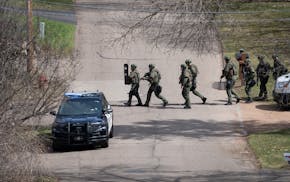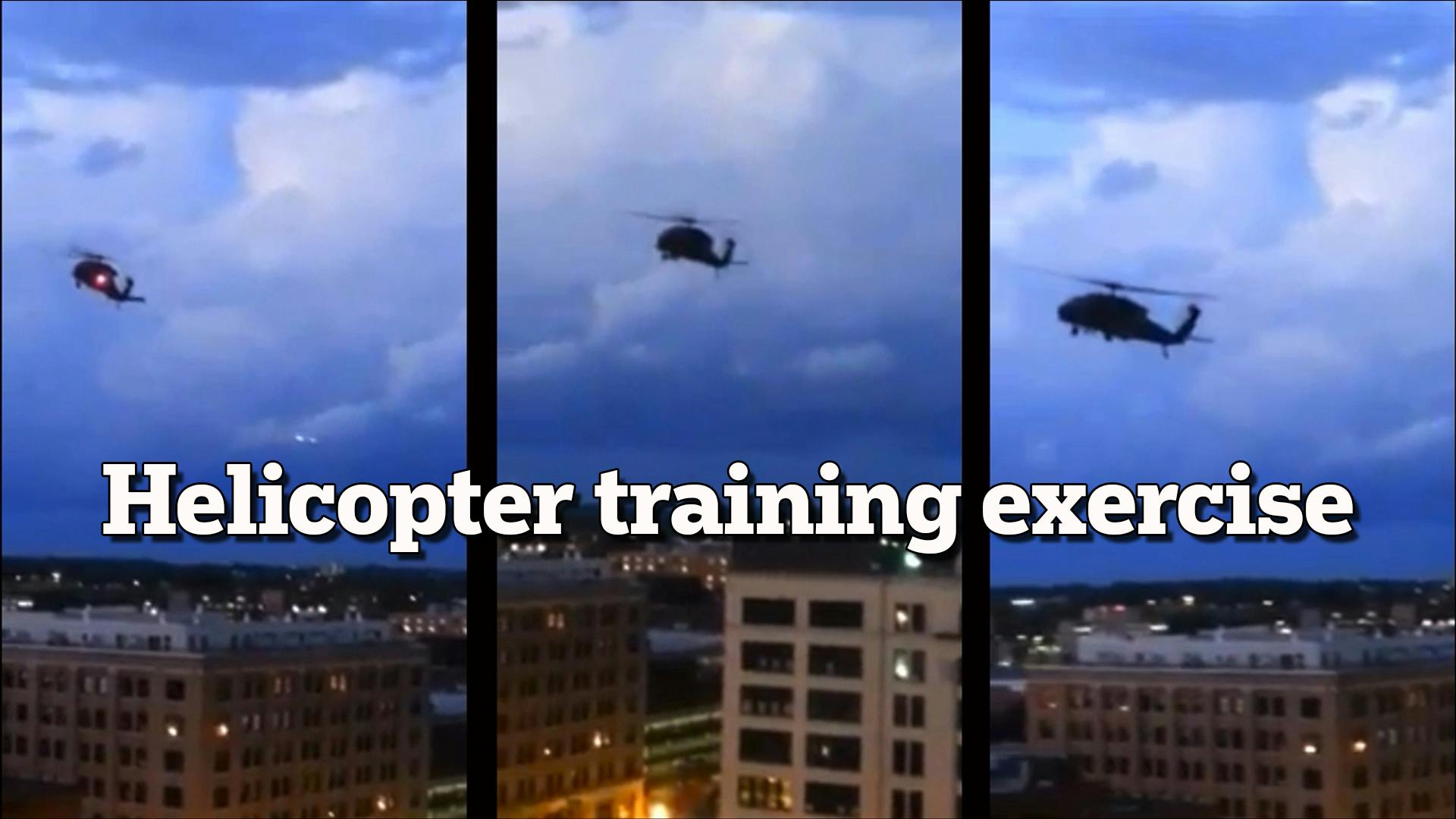People spotted the helicopters from street corners and downtown high-rise windows. Swooping low and darting between buildings, the choppers rattled houses and swiveled the heads of fans watching the Twins play at Target Field.
All across St. Paul and Minneapolis on Monday night, curious and sometimes frightened residents asked the same question: What the heck was that?
Turns out it was a repeat visit from the Night Stalkers, an Army regiment based at Fort Campbell, Ky., that specializes in night missions using the famed — and famously loud — MH-60 Blackhawk helicopters.
They'll be in the Twin Cities through Thursday, conducting training exercises much as they did here two years ago when they last raised local eyebrows, and up to a dozen times a year in urban areas around the country.
Still they took much of the population by surprise Monday, since media and even some local leaders were not told about the training until shortly before the choppers lifted off and the exercises began around 9 p.m.
It was all pretty routine even if it didn't seem like it, said Maj. Allen Hill, a public affairs officer with the 160th Special Operations Aviation Regiment at Fort Campbell.
"This is training we do all year-round," he said. "The unfortunate part is that the helicopters are loud and fast and, if you're not expecting them, a distraction."
St. Paul City Council Member Dave Thune fumed that "there were helicopters flying between buildings downtown. Forget that they're well trained and everything — the last time an aircraft hit a building, the World Trade Center fell down. That's what they're screwing with here."
Mitch Dokken, who lives in the Midway area of St. Paul, was watching a movie on his computer around 9:30 p.m. when his desk began to "vibrate pretty crazily."
He stepped outside and saw a helicopter flying right above him, perhaps 200 feet above the ground. About 30 minutes later, two more flew overhead, this time with searchlights on.
"It made me concerned about the timing of it, in the wake of what is happening in Ferguson [Mo.] right now," Dokken said.
"Why are they doing this and what's the point?"
Callers were nervous, upset
The Night Stalkers like to visit a variety of urban areas — recent sites included Phoenix, San Diego, Chicago, Miami and New Orleans — to conduct "realistic training" exercises to prepare pilots for any contingency, Hill said. Training at the same military installations again and again doesn't offer the same kind of challenge, he said.
Monday night's exercises included "familiarization flights" to help pilots become accustomed to key landmarks, and a tactical scenario played out at the former Amtrak railroad depot near W. University Avenue, Hill said. Contrary to some reports, he said, there was no rappelling down the sides of skyscrapers.
Minneapolis police spokesman John Elder said that "a lot of calls" came into City Hall on Monday and Tuesday, ranging from those happy about the training to those expressing concern or even anger.
Some said the timing was troubling in light of the unrest in Ferguson, the St. Louis suburb hit by rioting since a white police officer shot an unarmed black teenager this month.
"This was in planning months and months before Ferguson was even an issue," Elder said.
Thune said the helicopters flew so low over his West End home that he could "count the shoelaces on some of the guys hanging over the sides."
Thune's City Council office collected nearly 100 messages, texts and tweets from upset downtown residents. He said that there had been little or no prior notice of the exercises, and that even some police were confused.
Minneapolis City Council Member Jacob Frey said his office got "quite a few calls" from people who were both nervous and curious, while Council Member Lisa Goodman said she only got a couple.
"Even if I had a concern, I don't think it would matter," she said. "They have the right to use the airspace, and we don't have the right to tell them they can't."
Hill said that the pilots' flying skills at night "are unparalleled … we have the best equipment and pilots in the world." He said that local police provide security so that those getting trained aren't impeded by crowds, but he said it's untrue that the military gives police surplus hardware in exchange for services.
"Terrorists are in the cities and the streets and all over the place," he said. "This is an opportunity to honestly get pilots and crews out of their comfort zone, and give them the task of completing an assigned mission."
Kevin Duchschere • 651-925-5035

Man killed in Minnetonka by law enforcement started gun battle with deputies, BCA says

Should Hennepin County consider the race and gender of contractors it hires?
Search resumes in southwestern Minnesota for 15-year-old boy who jumped in lake after losing canoe paddle

Hockey coach with roots in Minneapolis Park and Rec dies at 81


